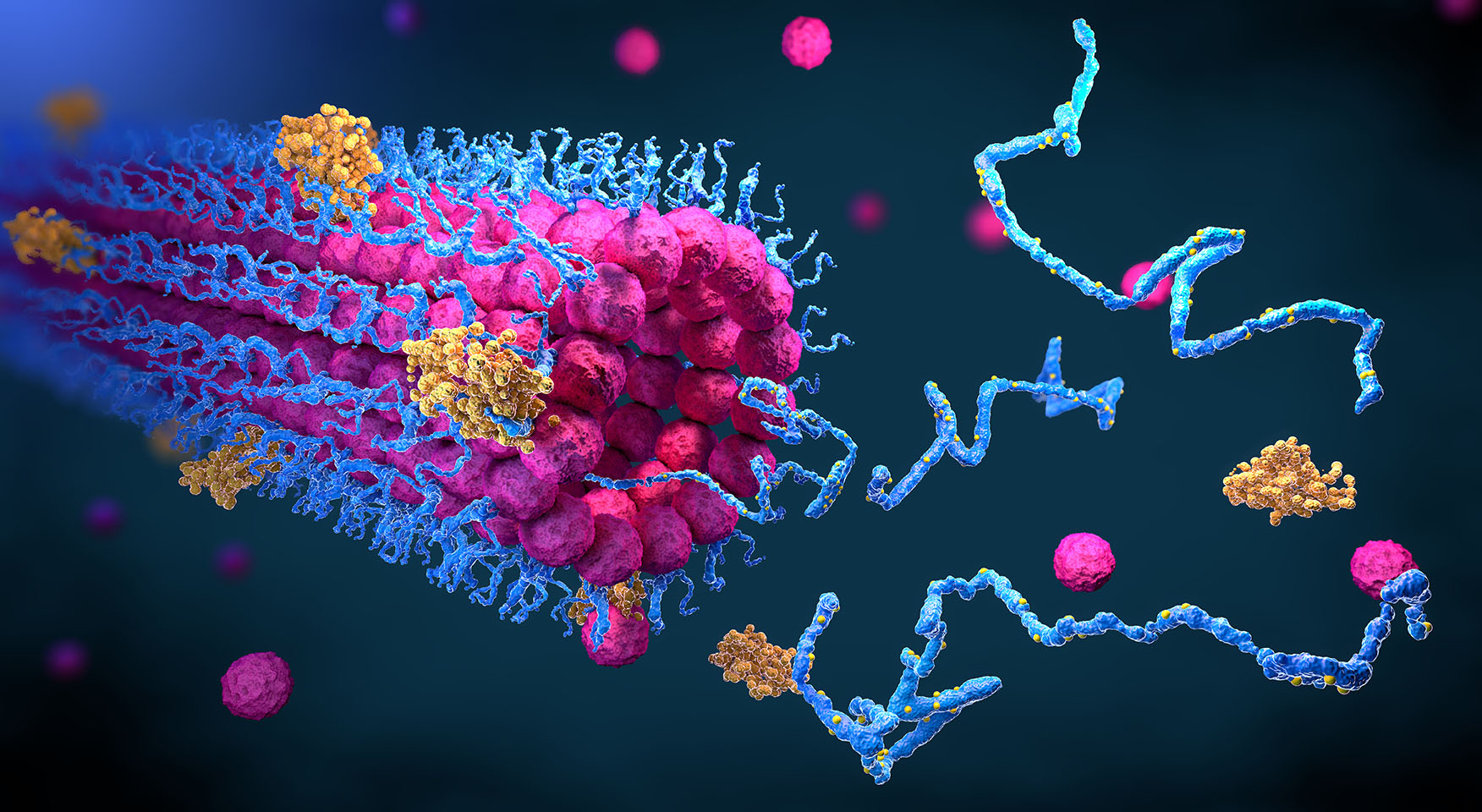
enzyme
Definition
Enzymes are proteins that act as biological catalysts. They speed up chemical reactions in living cells without being changed themselves. Enzymes are essential for life, as they are involved in many essential processes, such as digestion, metabolism, and cell division.
Enzymes are highly specific, meaning that they only catalyze a particular reaction. This specificity is due to the shape of the enzyme's active site, which is the region of the enzyme that binds to the reactant molecule. The active site is complementary to the shape of the reactant molecule, which allows the two molecules to bind together.
The rate of an enzyme-catalyzed reaction is affected by a number of factors, including the temperature, the concentration of the enzyme and the reactants, and the pH of the solution. The rate of the reaction typically increases with increasing temperature and enzyme concentration, and decreases with decreasing pH.
Enzymes are important for a variety of reasons. They help to keep our bodies healthy by breaking down food molecules and by helping to fight off infection. They are also used in many industrial processes, such as the production of food and medicine.
How can the word be used?
Enzymes are proteins that catalyze chemical reactions in living organisms.

Different forms of the word
Noun: enzyme.
Adjective: enzymatic.
Synonyms: catalyst, ferment.
Antonyms: inhibitor.
Etymology
The word "enzyme" comes from the Greek words en (in) and zyme (leaven). It was first used in English in the 19th century, and it is still used today to refer to proteins that catalyze chemical reactions in living organisms.
Question
What do enzymes do?
AQA Science Exam Question and Answer
Question:
Explain the role of enzymes in biological processes and their significance in living organisms. Describe how enzymes function as biological catalysts, speeding up chemical reactions in cells. Provide examples of enzymes and their specific functions in various physiological processes, such as digestion, respiration, and DNA replication.
Answer:
Enzymes are essential proteins that play a critical role in biological processes by acting as biological catalysts. They speed up chemical reactions in living organisms without being consumed in the process. Enzymes achieve this by lowering the activation energy required for a reaction to occur, making it easier for molecules to interact and form new products.
In digestion, for example, amylase enzymes break down complex carbohydrates into simple sugars, aiding in nutrient absorption. In respiration, enzymes like ATP synthase help generate adenosine triphosphate (ATP), the energy currency of cells. Enzymes like DNA polymerase facilitate DNA replication during cell division, ensuring accurate genetic information transfer.
Enzymes are vital for maintaining cellular functions, and their specificity ensures that each enzyme carries out precise tasks in the complex network of biochemical reactions within living organisms. Without enzymes, essential processes in cells would occur too slowly to sustain life.